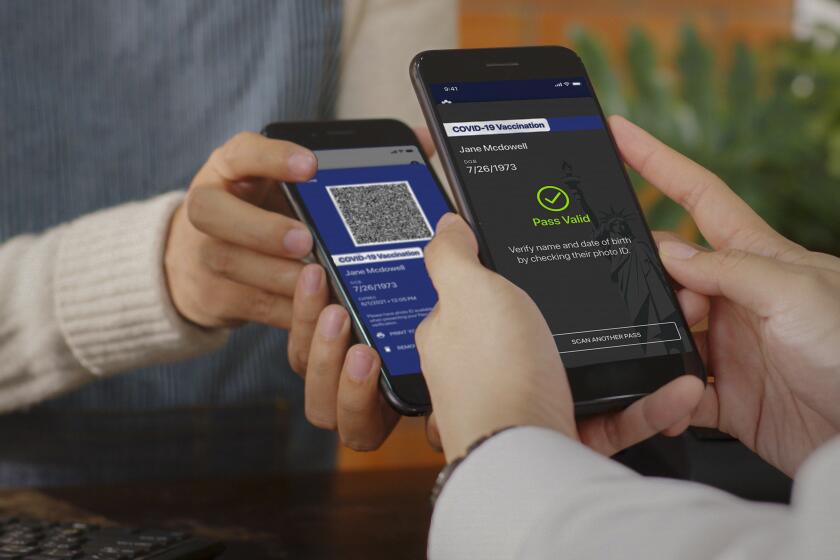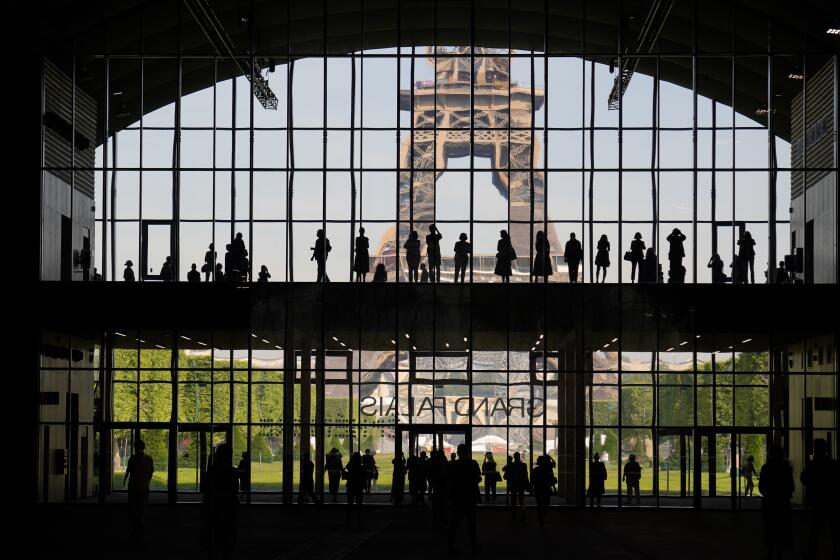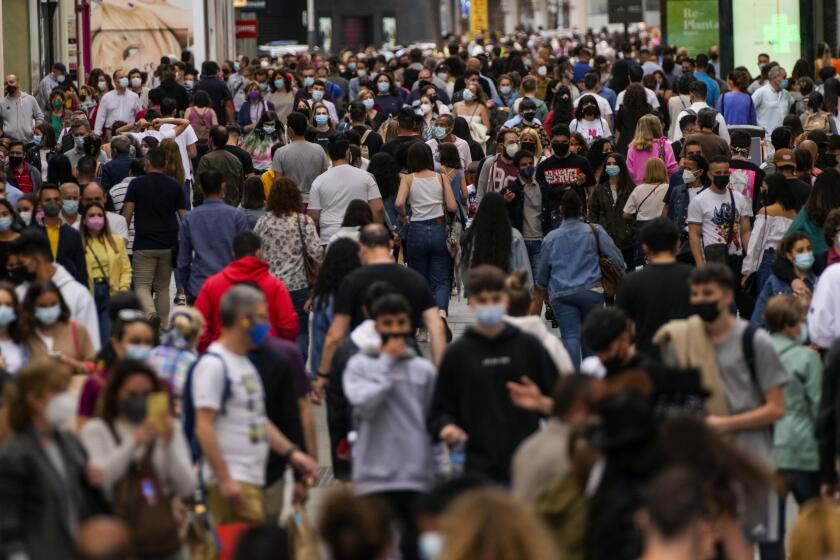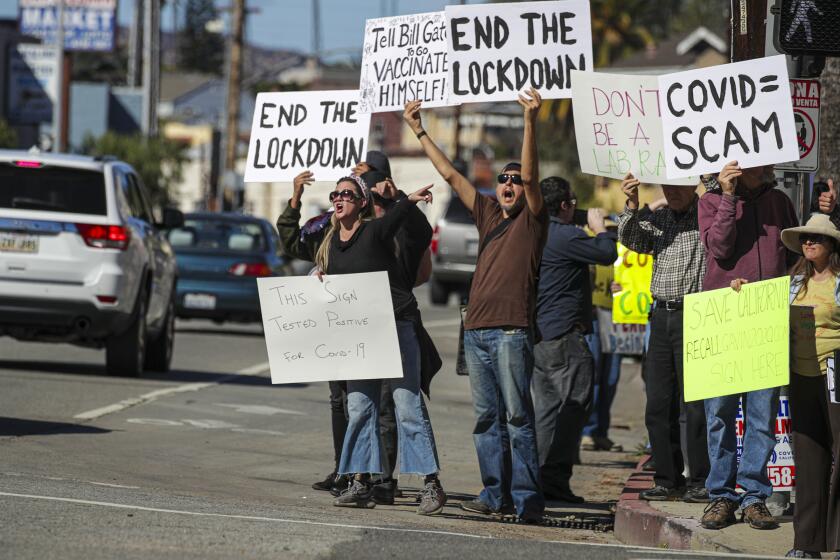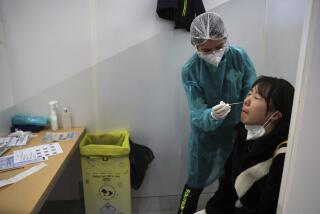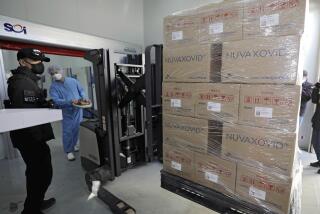As vaccinations and travel pick up, Europe says not all COVID-19 shots are equal
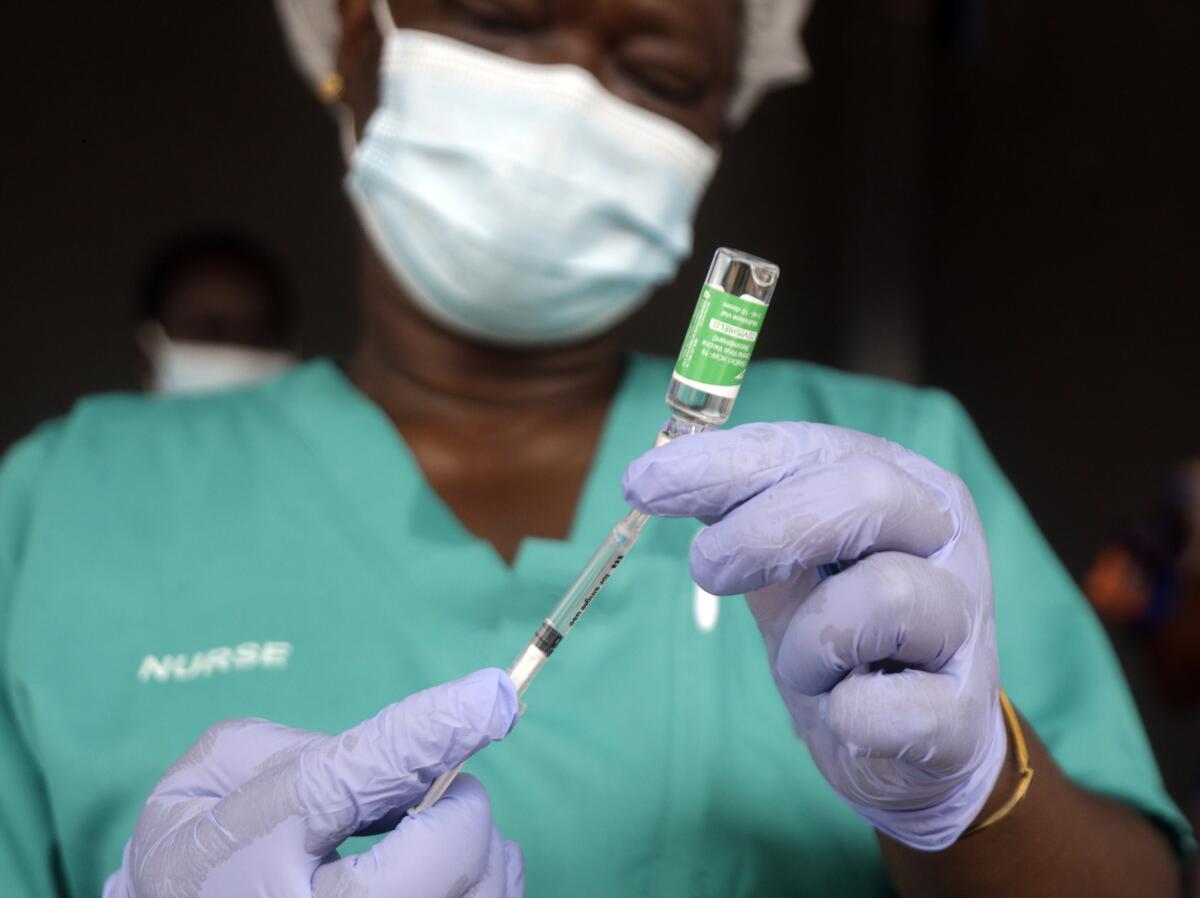
- Share via
LONDON — After Dr. Ifeanyi Nsofor and his wife received two doses of AstraZeneca’s COVID-19 vaccine in Nigeria, they assumed they would be free to travel this summer to a European destination of their choice. They were wrong.
The couple — and millions of other people who have been vaccinated through a United Nations-backed effort — could find themselves barred from entering many European and other countries because those nations don’t recognize the Indian-made version of the vaccine for travel.
Although AstraZeneca vaccine produced in Europe has been authorized by the continent’s drug regulatory agency, the same shot manufactured in India hasn’t been given the green light.
EU regulators said AstraZeneca hasn’t completed the necessary paperwork on the Indian factory, including details on its production practices and quality-control standards.
But some experts describe the EU move as discriminatory and unscientific, pointing out that the World Health Organization has inspected and approved the factory. Health officials say the situation won’t just complicate travel and frustrate fragile economies but also undermine vaccine confidence by appearing to label some shots as substandard.
As vaccination coverage rises across Europe and other rich countries, authorities eager to salvage the summer tourism season are increasingly relaxing coronavirus border restrictions.
The federal government isn’t willing to make a digital pass or app that attests to a person’s vaccination status. Several companies are trying to fill the void.
Earlier this month, the European Union introduced its digital COVID-19 certificate, which allows EU residents to move freely in the 27-nation bloc as long as they have been vaccinated with one of the four shots authorized by the European Medicines Agency, have a fresh negative test or have proof that they recently recovered from the coronavirus.
While the U.S. and Britain remain largely closed to outside visitors, the EU certificate is seen as a potential model for travel in the COVID-19 era and a way to boost economies.
The EU has authorized vaccines made by AstraZeneca, Pfizer, Moderna and Johnson & Johnson. But that doesn’t include AstraZeneca shots made in India or many other vaccines used in developing countries, including those manufactured in China and Russia.
Individual EU countries are free to apply their own rules for travelers from inside and outside the bloc, and their rules vary widely, creating further confusion for tourists. Several EU countries, including Belgium, Germany and Switzerland, allow people to enter if they have had non-EU-endorsed vaccines; several others, including France and Italy, don’t.
Europe is opening up to Americans and others after more than a year of coronavirus restrictions, but travel rules across the Continent are patchwork.
For Nsofor, the realization he could be barred was “a rude awakening.” After a tough year of working during the pandemic in Abuja, the Nigerian capital, Nsofor and his wife were looking forward to a European vacation with their two young daughters, perhaps admiring the Eiffel Tower in Paris or touring Salzburg in Austria.
Nsofor noted that the Indian-made vaccine he received had been authorized by the WHO for emergency use and had been supplied through COVAX, the United Nations-backed program to provide vaccines to the developing countries. The WHO’s approval included a visit to the Serum Institute of India’s factory to ensure that it had good manufacturing practices and that quality-control standards were met.
“We’re grateful to the EU that they funded COVAX, but now they are essentially discriminating against a vaccine that they actively funded and promoted,” Nsofor said. “This will just give room to all kinds of conspiracy theories that the vaccines we’re getting in Africa are not as good as the ones they have for themselves in the West.”
Ivo Vlaev, a professor at Britain’s University of Warwick who advises the government on behavioral science during COVID-19, agreed that Western countries’ refusal to recognize vaccines used in poor countries could fuel mistrust.
Countries across Europe are scrambling to accelerate COVID-19 vaccinations to outpace the spread of the Delta variant.
“People who were already suspicious of vaccines will become even more suspicious,” Vlaev said. “They could also lose trust in public health messages from governments and be less willing to comply with COVID rules.”
Dr. Mesfin Teklu Tessema, director of health for the International Rescue Committee, said countries that have declined to recognize vaccines cleared by the WHO are acting against the scientific evidence.
“Vaccines that have met WHO’s threshold should be accepted. Otherwise it looks like there’s an element of racism here,” he said.
The WHO urged countries to recognize all of the vaccines it has authorized, including two Chinese-made ones. Countries that decline to do so are “undermining confidence in lifesaving vaccines that have already been shown to be safe and effective, affecting uptake of vaccines and potentially putting billions of people at risk,” the U.N. health agency said in a statement this month.
Start your day right
Sign up for Essential California for the L.A. Times biggest news, features and recommendations in your inbox six days a week.
You may occasionally receive promotional content from the Los Angeles Times.
In June, the Serum Institute of India’s CEO, Adar Poonawalla, tweeted that he was concerned about vaccinated Indians facing problems traveling to the EU and said he was raising the problem at the highest levels with regulators and countries.
Stefan De Keersmaeker, a spokesman for the EU’s executive arm, said last week that regulators were obligated to check the production process at the Indian factory.
“We are not trying to create any doubts about this vaccine,” he said.
AstraZeneca said it only recently submitted the paperwork on the Indian factory to the EU drug regulatory agency. It didn’t say why it didn’t do so earlier.
More than 99% of new COVID-19 deaths are among the unvaccinated. The right-wing message that the vaccines are part of a dangerous government plot is depraved.
The failure of some national authorities to recognize vaccines made outside the EU — but whose European-made versions are authorized — is also frustrating some Europeans immunized elsewhere, including the U.S.
Gerard Araud, a former French ambassador to Israel, the U.S. and the U.N., tweeted this week that France’s COVID-19 pass is a “disaster” for people vaccinated outside of the country.
Public health experts warned that countries that decline to recognize vaccines backed by the WHO are complicating global efforts to safely restart travel.
“You can’t just cut off countries from the rest of the world indefinitely,” said Dr. Raghib Ali of Cambridge University. “To exclude some people from certain countries because of the vaccine they’ve received is wholly inconsistent because we know that these approved vaccines are extremely protective.”
Nsofor said he and his wife are still deciding where to take their summer vacation and are leaning toward Singapore or East Africa.
“I didn’t realize there were so many layers to vaccine inequity,” he said.
More to Read
Sign up for Essential California
The most important California stories and recommendations in your inbox every morning.
You may occasionally receive promotional content from the Los Angeles Times.
